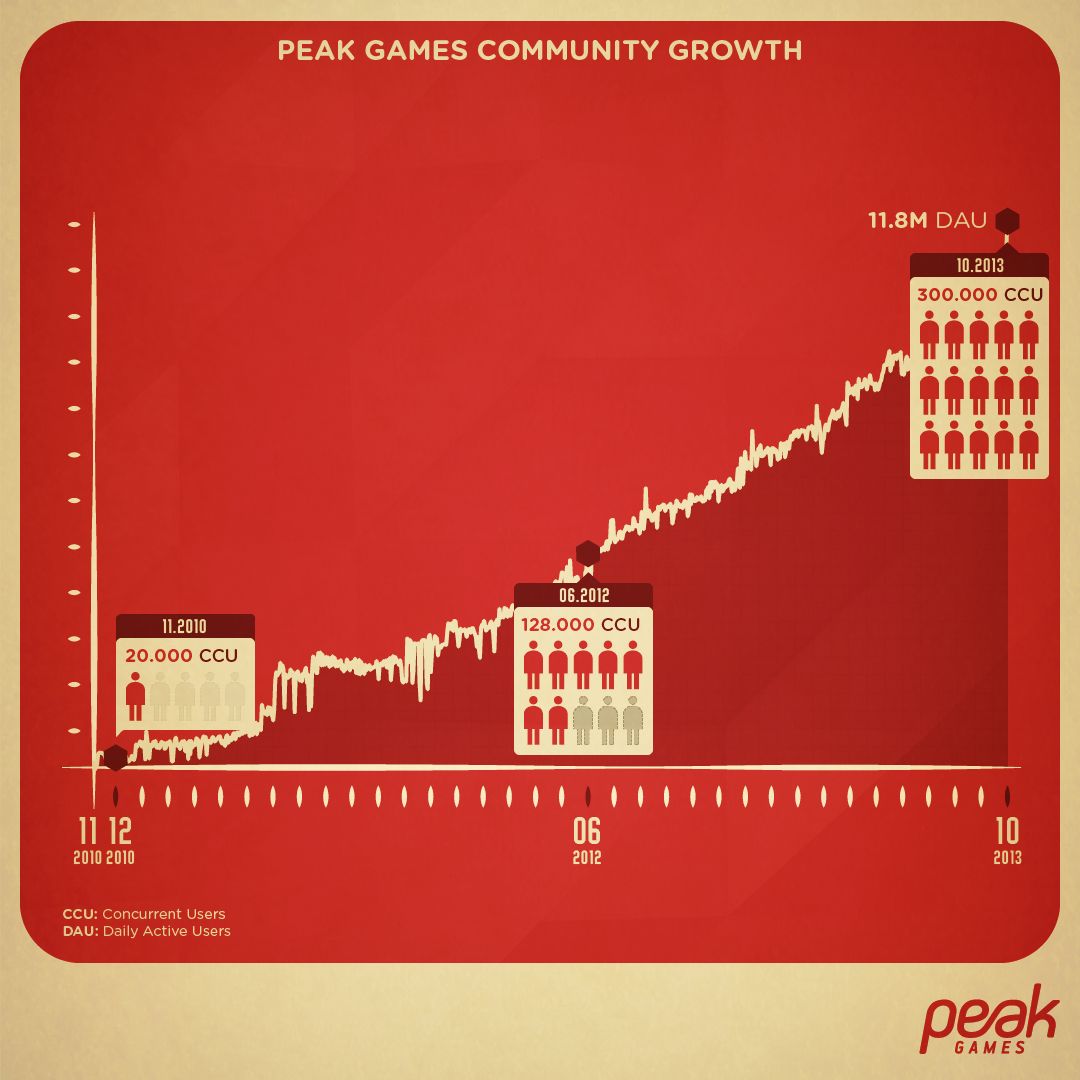The tremendous expansion of the gaming industry in the past decade has been a product of the increasing reach of the Internet, the explosion of mobile devices, and the global spread of these two factors. One of the strongest growth regions for games has been the Middle East and North Africa region (MENA), with a large population that has adopted social media and mobile technology rapidly. Despite political turmoil in some areas, mobile and social games have continued to grow strongly, and one of the leaders in this growth has been Peak Games.
 Rina Onur, Peak Games co-founder and CSO
Rina Onur, Peak Games co-founder and CSO
Commenting on Peak Games’ growth, investment bank Digi-Capital’s Founder Tim Merel said, “Peak’s management team continues to drive them from strength to strength, capitalising on deep cultural connections and understanding of their core Turkey/MENA markets. Our experience is that synchronous multiplayer and mobile are key growth drivers for leading games companies globally. Peak’s strength in these markets positions them as one of the most valuable players in Turkey/MENA.”
Peak is close to its three year anniversary, and the company is engaging a record setting 300,000 concurrent users (CCU)and 11.8 million daily active users (DAU) across Turkey and MENA. Revenues have grown by 300 percent per year with the huge growth of social and mobile games. Most of Peak’s games are what they term the parlor games genre — traditional and popular board, card and table-top games. These games are, as the company puts it, “focused on the community based, multiplayer and synchronous games that are part of everyday life.”
The [a]list daily spoke with Rina Onur, Peak Games co-founder and chief strategy officer, to find out more about Peak Games and the MENA marketplace. One of the key elements in Peak’s growth has been its choice of game genres. “As a company, we choose to focus on community driven games; games that require active and real-time participation of others to deliver a meaningful play experience,” explained Onur. “Our most popular games are those in the Plus Franchise. They are community driven, multiplayer, synchronous titles and are part of the everyday lifestyle in Turkey.”
The Plus Franchise is on of Peak’s game studios, and focuses on games which are digital renditions of traditional and popular board, card, and tabletop games. “Straight from the heart of local offline game culture, these games have been important parts of daily lives for generations,” said Onur. “The Plus Franchise alone has more than 300,000 concurrent users and includes six different games: Okey, Okey Plus, 101 Plus, Tavla Plus, Batak and Pool Plus. In addition; our flagship mid-core title War of Mercenaries thrives from a dedicated community that is interested in multiplayer combat and empire building.”
Peak sees mobile games making up an increasing share of the business, and they have integrated that into their strategy. “Our cross-platform strategy has been a key part of our growth,” agreed Onur. “As we release new games, they are cross-platform at launch on Facebook, iOS and Android. Mobile versions of some of the most successful games, including Okey Plus and 101 Plus, are consistently in top grossing lists, generating half their revenues from Android and iOS platforms. The strategy of building on communities that are generated around games, requires 24-hour and easy access. That is why a cross-platform strategy that initially started on Facebook, but is now also growing rapidly on smart phones and tablets, is key for us.”
The Middle East region is not, as you might think, dominated by Android devices. “The split between iOS and Android is fairly even with Android growing a bit more quickly and we’re starting to see greater market share in Android,” said Onur. “I think with this story, what we experience in Turkey and MENA is pretty similar to what a lot of Western players are experiencing in North America or Europe. Although the number of Androids are a bit larger, the conversion and ARPPU metrics on iOS are still better compared to Android.”

As is true elsewhere, tablets are becoming more important. “Tablets are increasing in volume rapidly in our region as well. The per user metrics we observe on tablets is extremely encouraging, which makes it an even more exciting opportunity and platform for us,” said Onur. “We have brought our flagship titles to both iOS and Android tablets, which are performing extremely well, so as we continue building community driven games, tablets as a platform, will be a major target for us. At the same time, we have very high hopes for the mobile versions of our mid-core games. We will be launching some exciting new games before the end of this year both for smart phones and tablets. Even though currently, smartphones are over-performing tablets overall — due to the sheer volume of devices that are lying around in the region — we believe tablets will become a significant strategic platform for game developers.”
Onur expects growth to continue in the future. “We consider Turkey a significant player in the MENA region,” said Onur. “Turkey will continue its rapid growth both in terms of Internet and smartphone/tablet penetration. The MENA region has the second highest rate of smartphone shipments out of Asia, so the region is growing like crazy. Following Turkey are Gulf region countries such as Saudi Arabia and Emirates. These countries will continue to grow both on PC and mobile; that’s why opportunities are almost limitless here.”


 Rina Onur, Peak Games co-founder and CSO
Rina Onur, Peak Games co-founder and CSO
